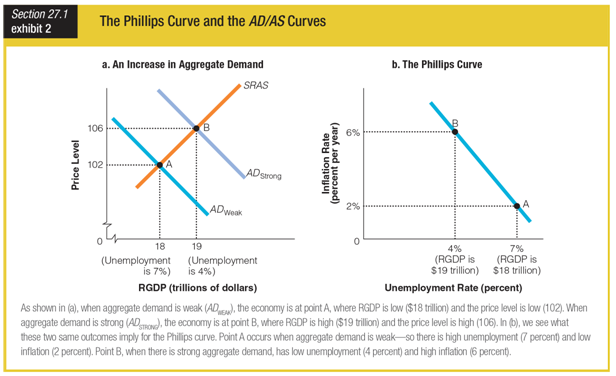A government policy that would raise the rate of productivity growth is
A) shifting infrastructure expenditures to the private sector.
B) taxing expenditures on research and development.
C) reducing the government budget surplus.
D) improving human capital development.
D
You might also like to view...
An individual bank can lend out at most its
a. actual reserves b. fractional reserves c. legal reserves d. demand deposits e. excess reserves
Which of the following is true about fiscal policy?
What will be an ideal response?
If real GDP per person were equal to $2,000 in 1900 and grew at a one percent annual rate, what would be the value of real GDP per person 100 years later?
A. $4,000 B. $2,210 C. $20,000 D. $5,410
When we compare the graphs for an increase in aggregate demand and the Phillips curve, we see that ______.

a. the impact of inflation on RGDP varies depending on which approach is used
b. neither graph shows the relationship between inflation and unemployment rates
c. neither graph shows how price changes influence RDGP
d. both graphs show the same outcome in different ways